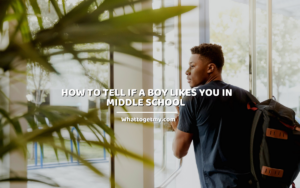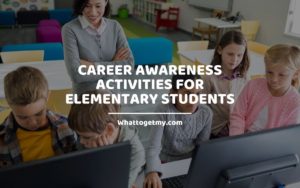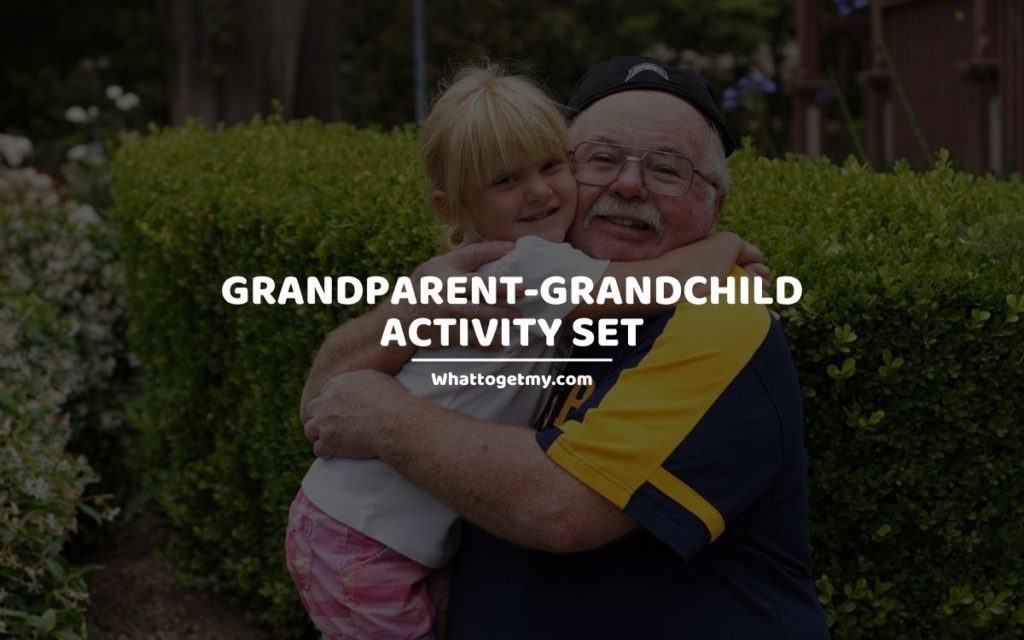8 Free Career Exploration Activities For High School Students
WhatToGetMy Instructional Article
We’ve all been there. Thinking about jobs and careers, our potentials, opportunities, and goals. That’s why we understand young people who are trying to find themselves. As teachers, you can be a huge part of your students’ self-identification. You can help them find their calling and guide them through career paths. All you need are free career exploration activities for high school students to get you started.
Career exploration should start in elementary school. Kids need to learn about lots of different options that are available. However, we’ll discuss only activities for high schoolers. This period is often a turning point in life because you need to choose one path that you’ll follow. Once kids reach college, they might change their minds, so it becomes even more important that they know all of the options ahead.
Before we get to the article, let’s just note a few things:
- A lot of students reach high school and still don’t know what to do in life. That’s completely normal because they’re just confused teens. You need to help them realize their potential and define life goals.
- If the students make up their minds before going to college or entering the job market, they’ll have a much easier time facing societal expectations.
- Students’ list of possible career options is often limited by encounters through family and friends and exposure to the media. That’s why schools should introduce children to a wide variety of career options, to expand their horizons.
- Follow changes in the job market because, with the increasing pace of technology, there are a lot more job options available. Kids need to have all the information before making a decision.
What is career exploration?
Simply put, this is the process of learning about modern job opportunities and how can kids pursue them. Choosing a career path is an essential part of growing up, so naturally, schools have an important role in guiding the children through.
Having quality career exploration lesson plans for high school students can help the students find what jobs are available upon graduation. They also learn about what education and work experience are needed for particular jobs. For example, if someone wants to become a chef, they can do it with or without a college education, but becoming a lawyer requires post-secondary education.
Career exploration activities for high school students can help with turning childhood dreams of “What will I be when I grow up” into reality. At least, these activities will put the students one step closer to reality. They give the children exposure to the working world and knowledge about how to successfully enter it. The job market is tough, but everyone needs to face it. The best way to help the students is to, as we already said, prepare them for the challenges ahead and these activities can help you do that.
Where to start?
When you’re making lesson plans for career exploration there are lots of things you need to consider. First, you need to figure out your students’ preexisting knowledge about careers. High schoolers might know about some of the options but they might be still confused about how the job market works and what approaches are efficient. Most people don’t have the chance to fulfill their potential, but you can give your students a head start, so they have better opportunities.
Career preparation lesson plans for high school students should be divided into four main steps: research, evaluation, discussion, and decision. These “phases” can last as long as you think it’s necessary. In the research phase, you’d help your students find all potential career options. Include “traditional” careers such as lawyer, accountant, doctor, construction worker, etc. You should also consider modern career options like a software developer or social media strategist.
After you make a list of popular and common careers (with a few unusual options too) have kids think about what seems interesting for them. Then they should make a list of specific careers and find out everything they can about them. Students usually use the internet for their research but you can also organize introductions with professionals in your area.
The evaluation phase should consist of analyzes of the research results. Students need to get a deeper understanding of their job options. They also need to figure out whether this particular career is a good fit for them. Can they meet the requirements for certain professions and can they even picture themselves working in those fields? What are their academic and social strengths? What subjects interest them the most? After they get vague answers to these questions you can move on to group discussions.
During discussions encourage students to talk with each other about what they’ve learned so far and what interests them the most. Getting insight from peers can be very helpful. Students can learn something new or find out whether they have a mutual career interest. They can also disagree, which can just spark constructive and interesting conversations.
Finally, students should decide what career they should pursue. This doesn’t have to be a definitive decision but it’s surely helpful to have a clue about what directions you should follow.
Volunteering
One good career project for high school students can be engaging in community service groups. Volunteering, helping others, and other generosity activities will help the students feel better and also develop the necessary skills for career improvement. Critical thinking, problem-solving, and communication skills are needed for a lot of jobs, so encourage your students to participate in community groups whenever they have more free time. Volunteering will expand their horizons and boost their college applications!
Career camps
Before we suggest some classroom career development activities for college students, we’d just like to mention career camps. They’re not just for middle schoolers, because high school students benefit a lot from them. They can explore lots of summer classes such as arts, science, fitness, engineering, etc. If you have some very indecisive students, be sure to recommend summer camps that explore career options.
Another summer commitment that can help your students decide future careers are internship programs. Help them choose a field and mentor so they can spend a couple of weeks in the summer working in museums, sports venues, offices, labs, etc.
School activities
You can incorporate lots of career exploration activities for high school students in your regular lessons. We’ll give you some ideas that you can adapt to fit your teaching style and dynamics in the classroom.
Improving study habits
 Personal development is important for reaching career goals. How can you know what jobs you will pursue if you don’t know what you’re good (or bad) at, right? For example, a person that isn’t good with numbers should avoid the fields that require lots of math education or at least work on improving his/her math skills.
Personal development is important for reaching career goals. How can you know what jobs you will pursue if you don’t know what you’re good (or bad) at, right? For example, a person that isn’t good with numbers should avoid the fields that require lots of math education or at least work on improving his/her math skills.
Help students to evaluate personal study habits with the “Study habits checklist” you can find online with just a couple of clicks. The goal of this activity is to have students discuss their strengths and weaknesses, so they can figure out what can be improved.
Before students complete the “Study habits checklist” worksheet, explain each statement on the list. This and lots of other career worksheets for high school students can be found online with ease. After students complete the checklist, discuss what skills can be improved and the ways to do it. At the end of the activity, each student should make a plan on the short-term goals regarding his/her study habits.
Daydreaming
 Encourage your students to visualize the future and explore fantasies. Ask your students to describe what their future lives would look like, what jobs they would perform, where will they live, etc. After thinking for some time, have the students write notes and discuss their wishes with each other.
Encourage your students to visualize the future and explore fantasies. Ask your students to describe what their future lives would look like, what jobs they would perform, where will they live, etc. After thinking for some time, have the students write notes and discuss their wishes with each other.
Spark the conversation by asking additional questions like “Does your fantasy job fit your preferred lifestyle?” You can also form groups of students with similar career interests, so they’ll have more topics to talk about.
Employment in my community
 Career choices can depend on the community in which people leave. Society might put a value on a particular field of work and available jobs might be limited. Use this activity to explore the work climate in your community.
Career choices can depend on the community in which people leave. Society might put a value on a particular field of work and available jobs might be limited. Use this activity to explore the work climate in your community.
Students should research local businesses with yellow pages and mobile phones or by using the internet. Divide the class into groups and give each group one business category to research (health care, transportation, construction, law firms, communication, agriculture, food service, and manufacturing. Make this project last for a couple of days, so students can prepare graphs and presentations.
The purpose of this activity is not only to learn how to collect information but to use the results of each group to discuss employment opportunities in your community. Discuss what category has the most/least business, what are the reasons for disparities, does location affect business, etc.
Is it worth the investment
 This activity will teach students to examine their options. Choosing the right career path isn’t just a matter of making pros and cons lists. You need to investigate everything surrounding your decision. How much do education and training cost (including tuition, books, accommodation while studying)? How long does the training last? Can you pursue this career without having to move far away?
This activity will teach students to examine their options. Choosing the right career path isn’t just a matter of making pros and cons lists. You need to investigate everything surrounding your decision. How much do education and training cost (including tuition, books, accommodation while studying)? How long does the training last? Can you pursue this career without having to move far away?
The questions should be answered with precision. For example, when students compare the costs of community college and well-known universities, they need to include all the fees, possibilities for a scholarship, cost of transportation, and other things besides the tuition.
Ask students to create both a written report and a presentation for the class. Give them enough time to complete this assignment, so you can be sure they’ve done proper research. After they’ve presented the results, mix the groups to discuss the subject.
Job readiness activities
Besides the basic career exploration, you can engage in other activities to boost the students’ preparation for the job market. For example, these fun college readiness activities for high school students are great for improving “soft skills” necessary in today’s world. We’ll give you just two examples. You can check out more in the article Leadership skills for students.
Explain the skills
Learn about the importance of soft skills by creating good and bad examples with your students. Write 20 soft skills on the board and assign one to each kid. They need to research the skill to understand the meaning. Afterward, help them to give an example of how those skills appear in real life. Remember to model both positive and negative examples.
Time-management challenge
Organizing your time efficiently will help you get things done faster. You’ll be more productive with less effort. The key to proper time-management is learning to prioritize tasks. Try this simple challenge in your regular lessons because it won’t take more than 15 minutes.
Make a list of tasks, assigning a point value to each activity. Divide the students into groups and instruct them to collect as many points as possible for 10 minutes. The activities can be various (doing 20 squats=5 points, signing your name=2 points), just make sure there are a lot of them.
After 10 minutes, discuss the results of each group. Go through the students’ decision-making process about what tasks should be done first, how should they do it, etc. This activity will help your students the importance of time management but also, they’ll improve critical thinking and communication skills.
Conclusion
We hope that these free career exploration activities for high school students will inspire you to try them in your classroom. Remember that teachers have an important role in the development of their students, so do your best to guide them. If some students lack motivation, give them encouragement with these motivational activities for students.
01 HOUR 17 MINUTES
ESTIMATED TIME DESIGNING AND UPLOADING THIS ARTICLE
07 HOURS 15 MINUTES
ESTIMATED TIME RESEARCHING AND WRITING THIS ARTICLE
You Might Also Like

How To Tell If A Boy Likes You In Middle School – 15 Ways To Know If He Likes You
Guys are usually terrible at expressing their feelings, and this is even worse the younger they are. Sure, you might notice some clear-cut signs that he likes you, but then other signs will downright confuse you. If you think a boy in your middle school

8 Career Awareness Activities for Elementary Students
8 Career Awareness Activities for Elementary Students WhatToGetMy Instructional Article Career awareness activities for elementary students can help you broaden your students’ horizons. Introducing various career opportunities is crucial for students’ growth and development. Elementary students don’t need detailed explanations for each career option. You

9 Things to Do in The Morning Before School
Things to Do in The Morning Before School WhatToGetMy Instructional Article Do you want a nice productive start of your day? Consider these things to do in the morning before school. Stop rushing in the mornings and learn how to enjoy getting ready for the

High School Teacher Gift Ideas End of Year You’ll Be Proud to Give
Teaching in a high school can be a sanity-shattering job, and to boot, high school teacher gift ideas end of year lists seem to be the last thing parents and students ask from Santa. Parents, more than anyone else, should appreciate high school teachers and

23 High School Graduation Gifts for Grandson
Your grandson has put in the work and will be graduating soon. You are so proud of him and want to reward his effort, however, you are unsure of what to get as a gift. You are looking for something that speaks volume, something he

7 High School Graduation Gifts for Granddaughter
Grandparents have a very special relationship with their granddaughters and they will want this to reflect when getting their granddaughter graduation gifts. It is important to choose gifts that will allow your granddaughter to see just how much you love her and are proud of


